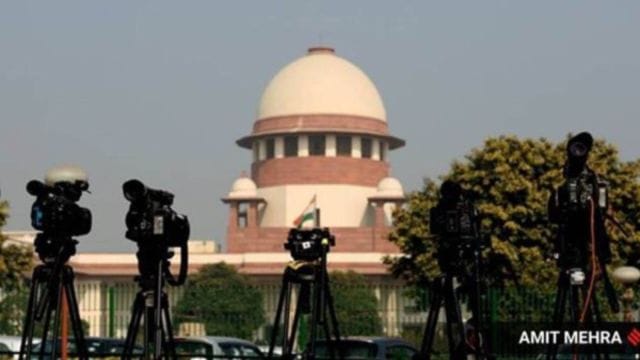‘Governors can’t stay silent’: SC says Raj Bhawan must give reasons for blocking Bills
The bench, however, wondered how the state would know what objections need to be looked into if the reasons for withholding assent are not communicated to it.
 The AG said that the contemplation of what the Governor could have done may probably arise only where the court finds that on the facts of a case, the Governor went completely wrong. (Express photo/Amit Mehra)
The AG said that the contemplation of what the Governor could have done may probably arise only where the court finds that on the facts of a case, the Governor went completely wrong. (Express photo/Amit Mehra)The Supreme Court on Monday said that Article 200 of the Constitution dealing with the Governor’s powers to withhold or give assent to Bills passed by the state legislature expects the Governor to communicate to the state the reasons for withholding assent.
“The Governor has his own importance. He is an important figure in the Constitution. He has an important role to play, undoubtedly. On the contrary, the proviso expects the Governor to make himself very clear before the House that look, this is what it has to do,” Justice J B Pardiwala presiding over a two-judge bench said. The bench also comprising Justice R Mahadevan was hearing petitions filed by the Tamil Nadu government challenging Governor R N Ravi’s decision to withhold assent to certain Bills and forward some to the President.
Attorney General R Venkataramani had argued that the Governor need not have communicated the reasons as the assent was withheld on the ground of repugnancy between the proposed state law, which sought to remove the Governor as Chancellor of the state’s universities, and the Central law — UGC Regulations.
The bench, however, wondered how the state would know what objections need to be looked into if the reasons for withholding assent are not communicated to it. “Why can’t you tell the government that, look, I find repugnancy in it? Or in the first instance, if he’s convinced, forward it straight to the President?” said Justice Pardiwala.
The AG said that the contemplation of what the Governor could have done may probably arise only where the court finds that on the facts of a case, the Governor went completely wrong. He added that the Governor had not done anything expressly prohibited by the Constitution. To the argument that the Governor has inherent powers, Justice Paridwala said that “but keep one thing in mind, inherent powers will not override main provisions”.
The AG referred to a five-judge constitution bench judgement that dealt with the question of Governor’s discretionary powers.
The judgement, he pointed out, referred to a seven-judge bench saying that there “are exceptions under which the Governor can act in his own discretion”. The ruling said that “the exceptions mentioned in the judgment are not exhaustive”.







